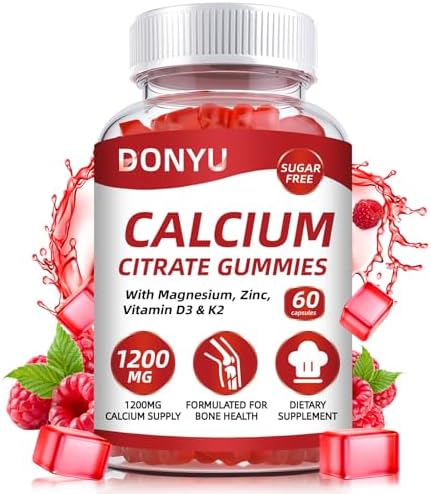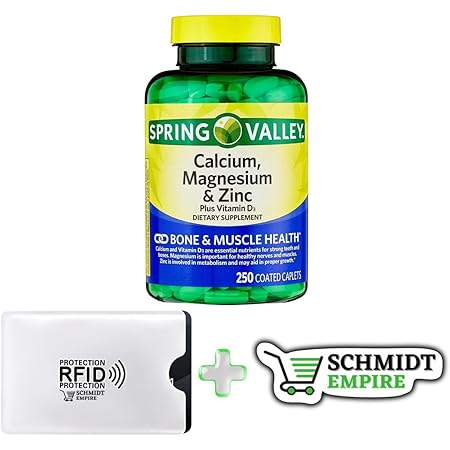In the quest for optimal health, micronutrients such as zinc and vitamin D3 often take a backseat to more prominent dietary components. However, deficiencies in these essential nutrients can lead to a myriad of health issues. Understanding the symptoms of zinc and vitamin D3 deficiency, as well as viable solutions, is crucial for individuals seeking to enhance their well-being. This article delves into the symptoms associated with these deficiencies, their impact on health, and the solutions available to combat them.
The Importance of Zinc in the Body
Zinc is an essential trace mineral that plays a vital role in numerous biological functions, including:
- Immune function: Zinc is crucial for the development and activation of immune cells.
- Wound healing: It aids in the synthesis of proteins and the cell division necessary for repairing tissues.
- DNA synthesis: Zinc is involved in the processes of cell division and growth.
- Taste and smell: It is essential for the proper functioning of taste and olfactory senses.
Despite its importance, zinc deficiency is common, particularly in developing countries, where dietary intake may be inadequate. According to the World Health Organization, approximately 2 billion people worldwide are affected by zinc deficiency.
Symptoms of Zinc Deficiency

Recognizing the symptoms of zinc deficiency is crucial for timely intervention. Common symptoms include:
- Impaired immune response: Increased susceptibility to infections.
- Hair loss: Thinning hair or alopecia can occur.
- Delayed wound healing: Prolonged recovery from cuts and abrasions.
- Skin lesions: Dermatitis and other skin issues.
- Loss of taste or smell: Reduced ability to taste food or detect odors.
- Diarrhea: Frequent gastrointestinal issues.
In severe cases, prolonged zinc deficiency can lead to more serious health complications, including growth retardation in children and cognitive impairments.
The Role of Vitamin D3 in Health

Vitamin D3, also known as cholecalciferol, is a fat-soluble vitamin that is critical for maintaining bone health and regulating calcium levels in the body. Besides its well-known role in bone health, vitamin D3 also contributes to:
- Immune system regulation: It enhances pathogen-fighting effects and reduces inflammation.
- Muscle function: Adequate levels are associated with improved muscle strength.
- Mood regulation: Some studies suggest a link between vitamin D deficiency and mood disorders.
Vitamin D3 is produced in the skin in response to sunlight; however, many individuals fail to get sufficient exposure, especially during the winter months or in regions with limited sunlight.
Symptoms of Vitamin D3 Deficiency

Vitamin D3 deficiency can manifest through a variety of symptoms, including:
- Fatigue: Persistent tiredness and low energy levels.
- Bone pain: Discomfort in bones, particularly in the lower back and legs.
- Muscle weakness: Reduced muscle strength and coordination.
- Frequent infections: A weakened immune response can lead to recurrent illnesses.
- Depressed mood: Increased risk of depression and anxiety.
Research indicates that approximately 1 billion people globally are deficient in vitamin D, highlighting the widespread nature of this issue.
Solutions for Zinc and Vitamin D3 Deficiency
Addressing deficiencies in zinc and vitamin D3 requires a comprehensive approach that includes dietary modifications, supplementation, and lifestyle changes.
Dietary Changes

Incorporating zinc and vitamin D-rich foods into your diet can significantly improve your nutrient levels. Here are some dietary sources for each:
Foods Rich in Zinc
- Oysters: One of the highest sources of zinc.
- Red meat: Beef and lamb are excellent sources.
- Poultry: Chicken and turkey provide good amounts.
- Beans: Legumes like chickpeas and lentils contain zinc.
- Nuts and seeds: Pumpkin seeds and cashews are beneficial.
- Whole grains: Fortified cereals and whole wheat products.
Foods Rich in Vitamin D3
- Fatty fish: Salmon, mackerel, and sardines are rich in vitamin D.
- Cod liver oil: A potent source of vitamin D3.
- Egg yolks: Contain small amounts of vitamin D.
- Mushrooms: UV-exposed varieties can provide vitamin D.
- Fortified foods: Milk, orange juice, and cereals often have added vitamin D.
Supplementation
When dietary changes are insufficient, supplements can help bridge the gap. It’s essential to consult with a healthcare provider before starting any supplementation regimen. Recommended dosages vary based on individual needs:
- Zinc: For adults, 8-11 mg per day is generally recommended.
- Vitamin D3: The standard recommendation for adults is 600-800 IU per day, but some individuals may require higher doses, especially if deficient.
Lifestyle Modifications

Beyond diet and supplementation, lifestyle changes can also enhance zinc and vitamin D3 levels:
- Sunlight exposure: Aim for 15-30 minutes of sunlight exposure several times a week to boost vitamin D3 synthesis.
- Physical activity: Regular exercise can improve immune function and overall health.
- Stress management: Chronic stress can deplete zinc levels; practices like meditation and yoga can help.
Case Studies and Research Findings

Several studies highlight the consequences of zinc and vitamin D3 deficiencies and the benefits of supplementation:
- A study published in the “American Journal of Clinical Nutrition” found that zinc supplementation improved immune function and reduced the incidence of infections in elderly participants.
- Research in the “Journal of Clinical Endocrinology and Metabolism” indicated that vitamin D supplementation improved mood and cognitive function in individuals with depression.
These findings underscore the importance of addressing deficiencies proactively to support overall health.
Zinc and vitamin D3 are crucial for maintaining physical and mental well-being. Recognizing the symptoms of their deficiencies is the first step toward addressing these health issues. By incorporating nutrient-rich foods, considering supplementation, and making lifestyle adjustments, individuals can effectively combat these deficiencies. As awareness grows about the importance of these micronutrients, it is imperative to take charge of one’s health by ensuring adequate intake of zinc and vitamin D3. In doing so, you can pave the way for a healthier, more vibrant life.